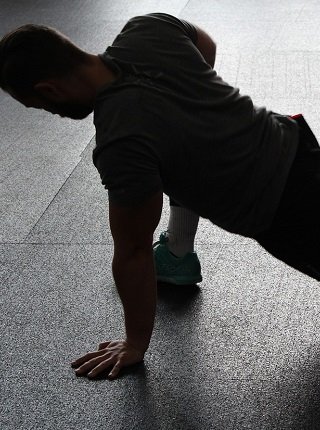Rheumatoid Arthritis Relief
A hallmark of rheumatoid arthritis (RA) is morning stiffness or morning pain. RA sufferers experience crippling pain right after waking up, and this can negatively impact their ability to function and slowly diminish their levels of well-being. Check out these tips for morning relief!
Treating rheumatoid arthritis pain…
Around 82% of RA patients and 92% of rheumatologists reported that morning RA pain has a significant impact on a person’s quality of life.
Furthermore, around 18% of the patients from this survey report being unable to work as a result of RA pain. Although morning pain is hard to deal with, there are things you can do to ease your pain and regain some of your functioning.
About Rheumatoid Arthritis
Rheumatoid arthritis is considered to be a chronic autoimmune disorder that primarily affects the joints. The disease usually progresses in a matter of weeks, but in some instances, it can develop within days’ time.
The joints in the body become inflamed, swollen, painful, stiff, and lose function due to RA. The pattern in which the disease manifests is usually symmetrical. This means that it affects the same joints on both sides of the body. The joints that are usually affected are those of the limbs.
Although people often refer to RA simply as arthritis, the truth is that there are many different forms of arthritis with rheumatoid arthritis and osteoarthritis being the most common. Both diseases have similar symptoms but completely different origins.
Treating arthritis pain

Although these drugs do help ease the pain and inflammation from RA, they do tend to become ineffective over time and even lead to serious side effects. This is why doctors recommend dietary and lifestyle changes to RA patients as an addition to drug therapy.
For instance, exercise has been shown to be an effective remedy for RA patients, helping them gain some of their functionality.
What about morning stiffness?
Treating morning stiffness caused by RA can be difficult. A study published in the Scandinavian Journal of Rheumatology states that the management of morning stiffness is mostly based on non-pharmacological therapy.
For instance, doctors recommend patients try simple and short stretching and exercises, applying heat to the affected joints, taking hot baths or showers, or delaying activities until later in the day. Unfortunately, although most patients follow these pieces of advice, the truths are that symptoms seem to persist. For this reason, the study mentioned above examined the role of circadian rhythm in morning stiffness.
From what is observed, it seems that morning stiffness is somehow controlled by the body’s internal clock. The researchers found that there is an insufficient release of cortisol during the night and elevated levels of the pro-inflammatory cytokine, interleukin (IL)-6 during the early morning hours.
Drug options
A drug called Lodotra which is, unfortunately, not approved by the FDA may be a promising treatment for morning stiffness. The drug works by suppressing IL-6 levels and the studies on this drug found that it helps reduce morning stiffness in patients with certain types of arthritis.
The drug is meant to be taken at 10 PM and starts working around four hours upon ingestion. This makes it a more convenient alternative to exogenous glucocorticoids which are meant to be taken during the night. Taking glucocorticoids during the wee hours is very unpractical and can disrupt a person’s sleep leading to even more health problems.
Non-pharmacological alternatives
Also, consider adjusting your sleep and room ambient in a way that will reduce the severity of morning stiffness.
For instance, make sure that you sleep in a warm room, but not too warm as this might disrupt your sleep. Keep yourself covered or use heating pads on your affected joints. Try learning to sleep in a position that does not put pressure on your joints.
Stress relief is also important when speaking of RA. If you haven’t already done so, do talk to a therapist about stress and figure ways to manage it.
Wrap-Up
Treating pain from RA isn’t easy. The pain is usually worse in the morning and slowly subsides as the day progresses.
However, most people need to be functional in the early morning hours due to work and other obligations.
When RA pain interferes with your ability to function, this can lead to problems in work and life in general. Although doctors recommend patients with RA to stretch and take warm baths early in the morning to ease their pain, this has proven not to be all that beneficial.
Furthermore, changing your lifestyle and dietary habits may also help as can stress management.
- 7 Foods That Improve Memory - February 23, 2019
- Middle Age Fitness: 6 Workouts for Weight Loss - November 30, 2018
- How Does Exercise Improve Sleep - November 24, 2017